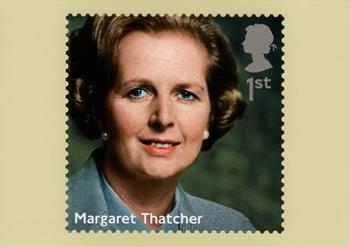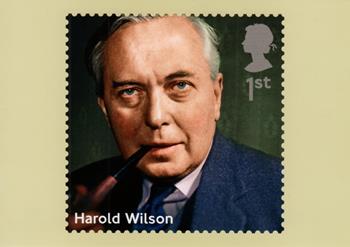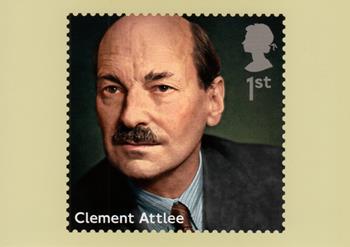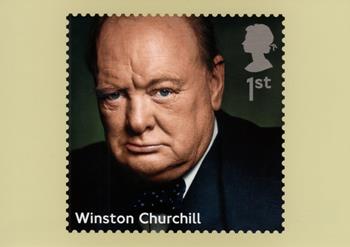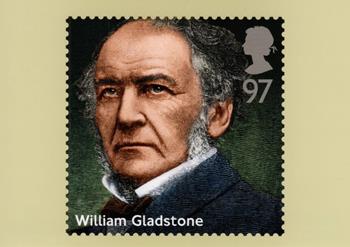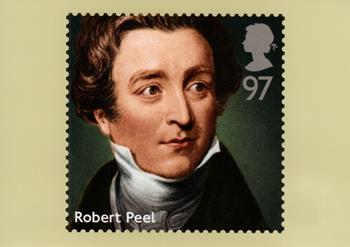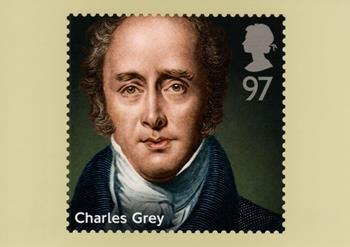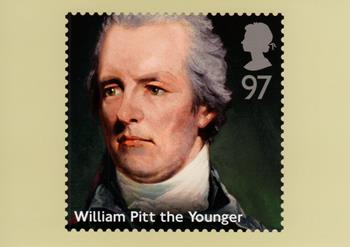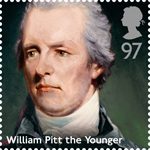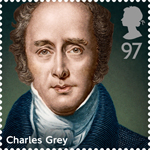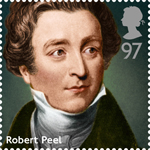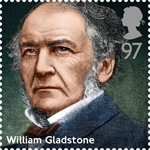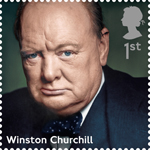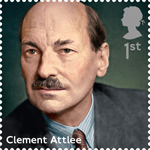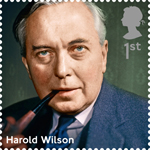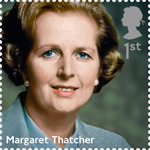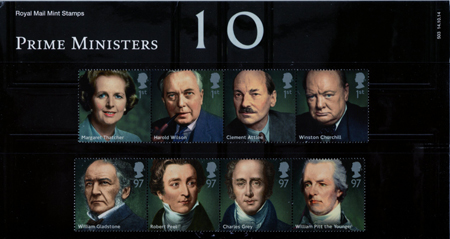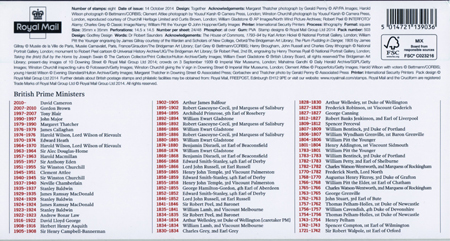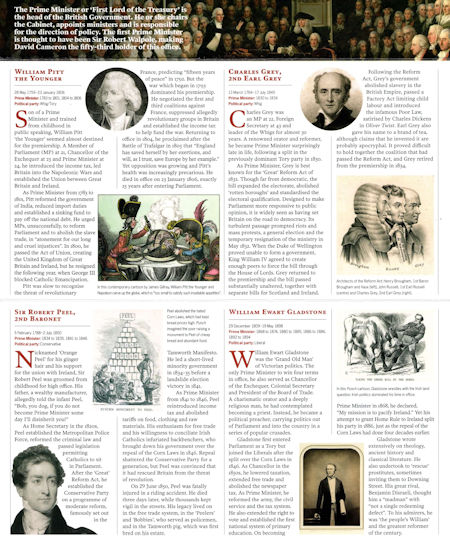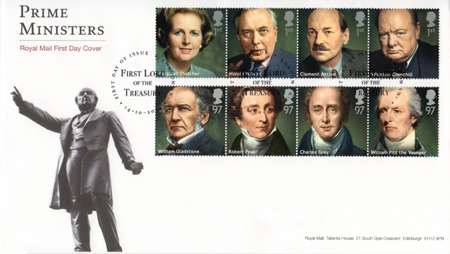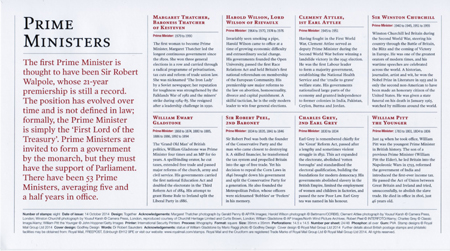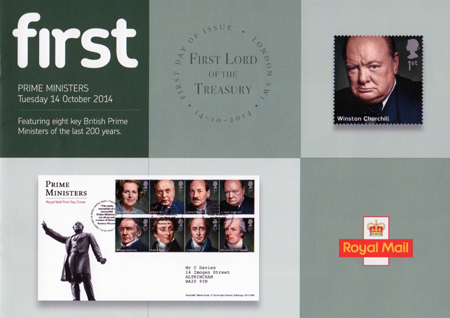Prime Ministers
2014 (October 14 2014)Commemorative
Designed by Together
Size 35mm (h) x 35mm (v)
Printed by International Security Printers
Print Process Lithography
Perforations 14.5 x 14.5
Gum PVA
Stamps
William Pitt The Younger
97pImage preview by Royal Mail
Pitt became Prime Minister at just 24 and led Britain into the Napoleonic Wars. He reformed the government of India, established income tax and passed the Act of Union between Great Britain and Ireland.
 William Pitt The Younger at Wikipedia
William Pitt The Younger at Wikipedia
Charles Grey
97pImage preview by Royal Mail
As Prime Minister, Grey passed the Reform Act of 1832, laying the foundations for the modern electoral system. His government abolished slavery in the British Empire and introduced the ‘New’ Poor Law.
 Charles Grey at Wikipedia
Charles Grey at Wikipedia
Robert Peel
97pImage preview by Royal Mail
Peel founded the Conservative Party (previously known as the Tory Party), established the Metropolitan Police and reintroduced income tax. He reformed the Church of England and cut taxes on food, but he divided his party in 1846 by repealing the Corn Laws.
 Robert Peel at Wikipedia
Robert Peel at Wikipedia
William Gladstone
97pImage preview by Royal Mail
Four times Prime Minister and an MP for 60 years, Gladstone was the ‘Grand Old Man’ of British politics. He reformed the electorate, the tax system and primary education.
 William Gladstone at Wikipedia
William Gladstone at Wikipedia
Winston Churchill
1stImage preview by Royal Mail
Winston Churchill led Britain through the Second World War, delivering some of the most quoted speeches of modern times. He won the Nobel Prize for Literature and warned of an ‘Iron Curtain’ between Western and Eastern Europe.
 Winston Churchill at Wikipedia
Winston Churchill at Wikipedia
Clement Atlee
1stImage preview by Royal Mail
Clement Attlee was deputy Prime Minister during the Second World War and won a landslide election in 1945. His government founded the NHS and created the ‘cradle to grave’ welfare state, modelled on the Beveridge Report.
 Clement Atlee at Wikipedia
Clement Atlee at Wikipedia
Harold Wilson
1stImage preview by Royal Mail
Harold Wilson promised a new Britain forged in the ‘white heat’ of technology. He held Britain’s first national referendum, extended university education and passed major reforms of race relations and sexual equality.
 Harold Wilson at Wikipedia
Harold Wilson at Wikipedia
Margaret Thatcher
1stImage preview by Royal Mail
Margaret Thatcher was the first female Prime Minister, winning three elections. Her governments increased home ownership and restructured the UK economy, as well as fighting the 1982 Falklands War. She is the longest serving PM of the modern era.
 Margaret Thatcher at Wikipedia
Margaret Thatcher at Wikipedia
PHQ Cards
